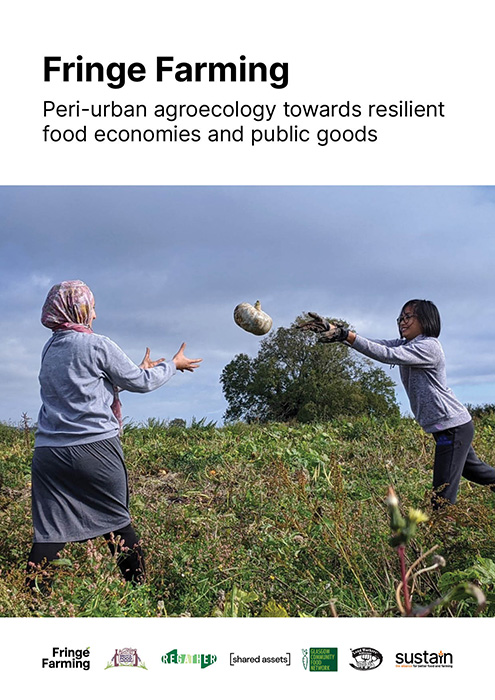
Fringe Farming: peri-urban agroecology towards resilient food economies and public goods
28pp - 2022 | 2738Kb
Local and national policy recommendations to support agroecological farming producing multiple benefits at the edge of UK cities. Based on research and action planning with multiple stakeholders in four city regions, national farmer forums and policy focus groups.

Fringe Farming: peri-urban agroecology towards resilient food economies and public goods
28pp - 2022 | 2738Kb
Agroecological farming is an approach where food is produced by working with nature, rather than against it, and is traded fairly through closer relationships between producer, trader and consumer covering seed to soil to plate. This systemic approach creates multiple social, economic and ecological benefits in peri-urban areas including:
These multiple benefits and public goods can support local, regional, and national government to meet existing goals covering climate change, biodiversity, enterprise and employment and more. In terms of urban planning, agroecological farming on the fringes of cities can assist a green economic recovery by using farming methods that retain the ecological benefits of peri-urban areas and greenbelt land, while also building economies that connect the urban and the rural.
Desk based research in London, UK, estimated that the conversion of 1.4% of land growing cereals and grassland to vegetables around the city could produce an additional 1.3 million kg of food for communities. Considering the increase in both demand for regionally-produced foods, and demand for land by a new generation of growers, there is an opportunity for government, at different levels to meet these demands. For example, they could mobilise land, infrastructure and investment to support new green economies that channel funds to local communities. Some of the report recommendations are:
More recommendations and details are in the report.
Fringe Farming: The Fringe Farming project is a collaboration with partners across the UK to understand barriers, identify land opportunities and local actions, and develop national policy to enable agroecological farming at the edge of cities as part of a green economic recovery.